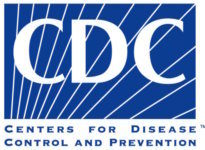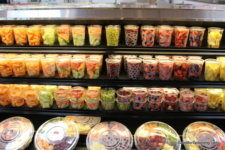According to the CDC and 10 state health agencies, a total of 177 people infected with the outbreak strain of E. coli O103 have been reported from 10 states – Georgia (41), Kentucky (65), Ohio (10), Tennessee (52), Virginia (2), Indiana (1), Florida (3), Illinois (1), Mississippi (1) and Minnesota (1). The Illnesses started on March 1, 2019, to April 14, 2019. Twenty-one people have been hospitalized. No deaths or f hemolytic uremic syndrome have been reported. Epidemiological data indicate that ground beef is the likely source of this outbreak. Officials at USDA-FSIS, in Kentucky, and Tennessee collected ground beef from a restaurant and an institution where ill people reported eating, and laboratory testing identified the outbreak strain of E. coli O103 in the ground beef collected in Tennessee. E. coli O103 was identified in the ground beef collected in Kentucky, but laboratory results are pending to determine if it is closely related to the E. coli O103 identified in ill people. Grant Park Packing in Franklin Park, Ill., recalled approximately 53,200 pounds of raw ground beef products on April 24, 2019. K2D Foods, doing business as Colorado Premium Foods, in Carrollton, Ga., recalled approximately 113,424 pounds of raw ground beef products on April 23, 2019. The CDC report did not reveal where the meat packaged by K2D did and Grant Park come from. The restaurant locations are also not revealed. @ https://www.cdc.gov/ecoli/2019/o103-04-19/index.html
ruth
Investigation Notice: A multistate outbreak of E. coli Infections
ruth
The Canadian Food Inspection Agency (CFIA) has linked the nationwide Salmonella Enteritidis outbreak to frozen Celebrate-brand of profiteroles and mini chocolate éclairs and issued a recall for the products. The agency says 73 people became ill (laboratory confirmed)due to salmonella, most of them in B.C. (27), with cases reported in Alberta (12), Saskatchewan (9), Manitoba (10), Ontario (13) and Quebec (2). Nineteen of those needed to be hospitalized, with two deaths reported. “However, it hasn’t been determined whether salmonella was a contributing cause in these deaths.” says the CFIA in a statement. “Many of the people who became sick reported eating Celebrate brand classic/classical or egg nog flavored profiteroles or mini chocolate éclairs purchased at various grocery stores before their illnesses occurred.” Dr. Eleni Galanis with the B.C. Centre for Disease Control says investigators have linked the Salmonella that caused the disease to Celebrate-brand of profiteroles and mini chocolate éclairs. “That is not a common food … that we see reported by people who are part of an outbreak, especially for salmonella. We anticipate chicken or egg being a common source,” she said. Galanis said the B.C. outbreak was linked to products purchased at AG Foods stores in the Interior and northern B.C. and Fairway Markets in and around Victoria. The implicated products were manufactured in Thailand by Mountain Mist (The Belgian Baker) Thailand Ltd. and distributed in Canada by Retail Resource Services Inc., located in Beaumont, Alberta, Canada (Retail Resource). @ https://www.coastmountainnews.com/news/celebrate-products-linked-to-salmonella-outbreak/
Canadian Food Inspection Agency issues recall
ruth
The CDC report (https://www.cdc.gov/mmwr/volumes/68/wr/mm6816a2.htm?s_cid=mm6816a2_w) shows that during 2018, FoodNet identified 25,606 infections, 5,893 hospitalizations, and 120 deaths. The incidence of most infections is increasing, including those caused by Campylobacter and Salmonella, which might be partially attributable to the increased use of culture-independent diagnostic tests (CIDTs). The incidence of infections with Salmonella Enteritidis, the most common Salmonella serotype, has not declined in over ten years. The incidence of Cyclospora infections increased markedly compared with 2015–2017, in part related to large outbreaks associated with produce. During 2018, romaine lettuce was linked to two multistate outbreaks of STEC O157 infections. According to the report, Campylobacter has been the most commonly identified infection in FoodNet sites since 2013, and the incidence appears to be increasing. Poultry is a major source of Campylobacter bacteria, the agency noted. More targeted prevention measures are needed on produce farms, food animal farms, and in meat and poultry processing establishments to make food safer and decrease human illness.
Foodborne diseases represent a major health problem in the United States. The Foodborne Diseases Active Surveillance Network (FoodNet) of CDC’s Emerging Infections Program monitors cases of…
ruth
On April 24 the FDA and CDC updated their investigation of Salmonella Carrau illnesses linked to pre-cut melon products. The contaminated products include cantaloupe, honeydew, or watermelon, or maybe mixes of some or all of these melons and other pre-cut fruit. On April 12, 2019, Caito Foods, LLC, of Indianapolis, Ind., recalled products containing pre-cut melons because they are potentially contaminated with Salmonella. Additionally, Caito Foods, LLC temporarily suspended producing and distributing these products. Salmonella Carrau is a rare type of Salmonella but has been historically seen in imported melons. Reports from Caito Foods, LLC indicate that imported melons were used in the suspect pre-cut melon products. The products were packaged in clear, plastic clamshell containers and distributed in Illinois, Indiana, Iowa, Kansas, Kentucky, Michigan, Minnesota, Missouri, Nebraska, New York, North Carolina, Ohio, Pennsylvania, Tennessee, West Virginia, and Wisconsin. The products were sold in Kroger, Target, Trader Joe, Walmart, and Amazon. @ https://www.fda.gov/Food/RecallsOutbreaksEmergencies/Outbreaks/ucm635949.htm?utm_campaign=Outbreak%20Salmonella%20Carrau%20Pre-cut%20Melons&utm_medium=email&utm_source=Eloqua
https://www.fda.gov/Food/RecallsOutbreaksEmergencies/Outbreaks/ucm635949.htm?utm_campaign=Outbreak%20Salmonella%20Carrau%20Pre-cut%20Melons&utm_medium=email&utm_source=Eloqua


